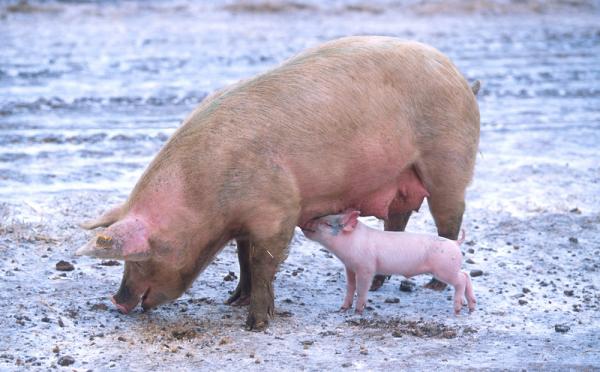
Gestation Crates Have No Place in U.S. Food Production (Op-Ed)

Wayne Pacelle is the president and chief executive officer of The Humane Society of the United States (HSUS). This Op-Ed is adapted from a post on the blog A Humane Nation, where the content ran before appearing in LiveScience's Expert Voices: Op-Ed & Insights.
It's been a remarkable 18-month period when it comes to the movement to combat the intensive confinement of animals on factory farms.
The public, major food retailers, numerous producers and so many lawmakers have turned against the idea of allowing immobilization of animals as a customary animal-production practice.
Recently, USA Today not only condemned the farm bill amendment introduced by Rep. Steve King (R-Iowa) — which seeks to nullify state laws banning extreme confinement of animals and standards on food safety and animal welfare — but also affirmed its support for federal legislation to ban the extreme confinement of laying hens in barren battery cages.
But perhaps the biggest story of the period has been the repudiation of gestation crates — confinement cages for breeding sows in the pig industry — by the nation's major food sellers. After McDonald's announced its plan to phase out the crates in February 2012, Burger King, Safeway, Costco, Cracker Barrel, Sodexo and about 50 other major food retailers followed suit.
After seeing the top-eight supermarket chains in Canada make a similar announcement, the National Farm Animal Care Council, a semi-governmental standard-setting body in the country, issued a preliminary plan to ban any new construction of gestation crates in 2014 and to phase out current crates, as well. That means all 10 provinces in Canada may phase out gestation crates if the policy is made final.

In the United States, New Jersey lawmakers aligned themselves with legislators in nine other states and overwhelmingly voted earlier this year to ban gestation crates. But surprisingly, Gov. Chris Christie vetoed that bill.
Sign up for the Live Science daily newsletter now
Get the world’s most fascinating discoveries delivered straight to your inbox.
Recently, in a press conference with state Sen. Raymond Lesniak, the author of the bill in New Jersey, I joined colleagues in the animal-protection movement in asking lawmakers to affirm their original votes to ban gestation crates. The senate, following Lesniak's lead, voted 35 to 1 in favor of S. 1921, and the assembly voted 60 to 5.
Democrats and Republicans, by commanding majorities, favored this common-sense, humane policy of not confining sows in tiny crates. All animals deserve humane treatment, including those raised for food. It's wrong to immobilize animals in cages so small that the creatures cannot even turn around.
The HSUS is now launching a $150,000 advertising campaign in the state asking for lawmakers to uphold their original determination on this legislation. If they do, they'll succeed in overriding an unfair and inexplicable veto. New Jersey is one of the leading animal welfare states in the nation, and New Jersey lawmakers want to build on that record by enacting S. 1921.
This article originally appeared as "Putting the Override Effort in Overdrive"which first appeared as on the HSUS blog A Humane Nation. The views expressed are those of the author and do not necessarily reflect the views of the publisher. This version of the article was originally published on LiveScience.










